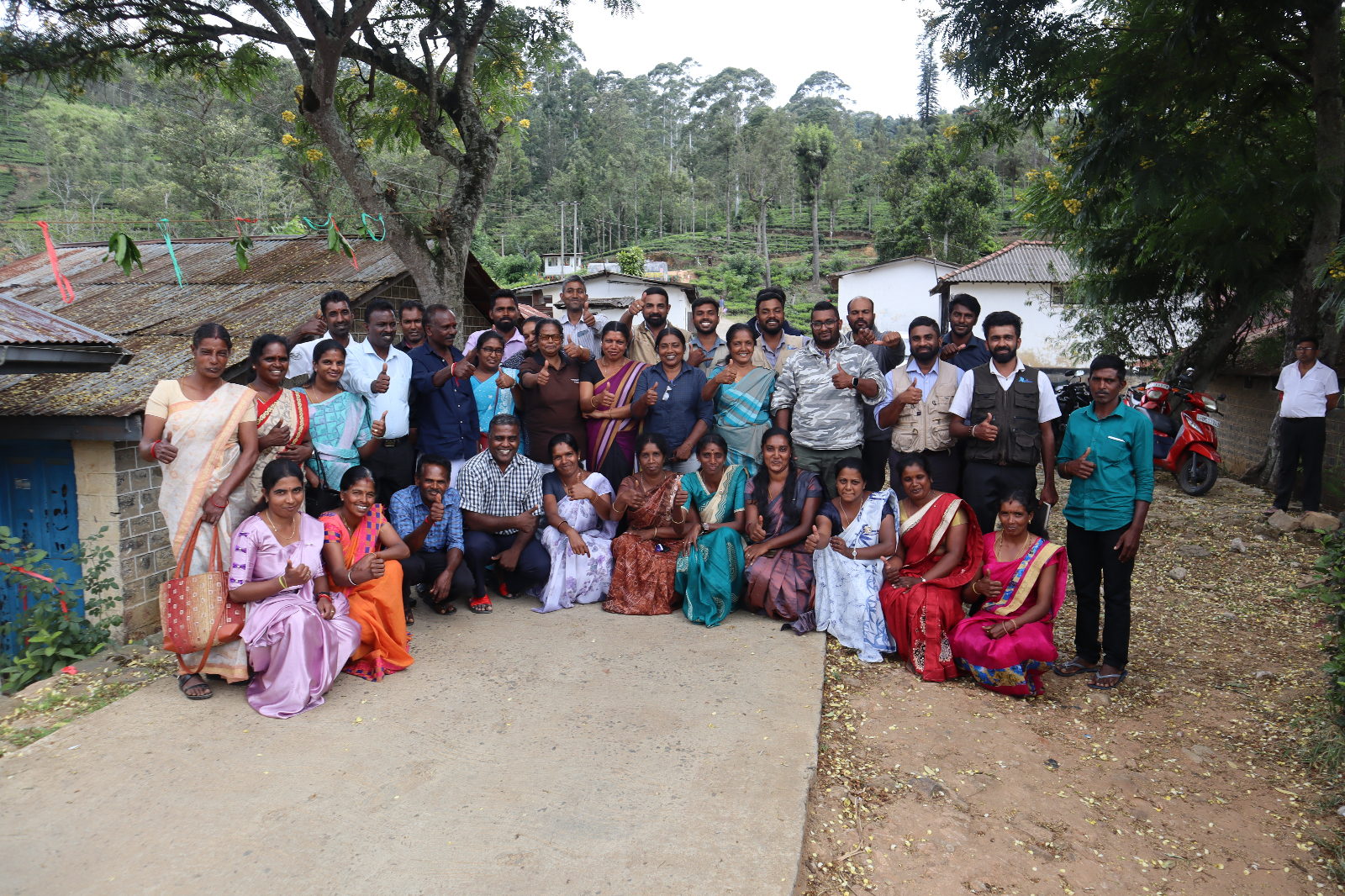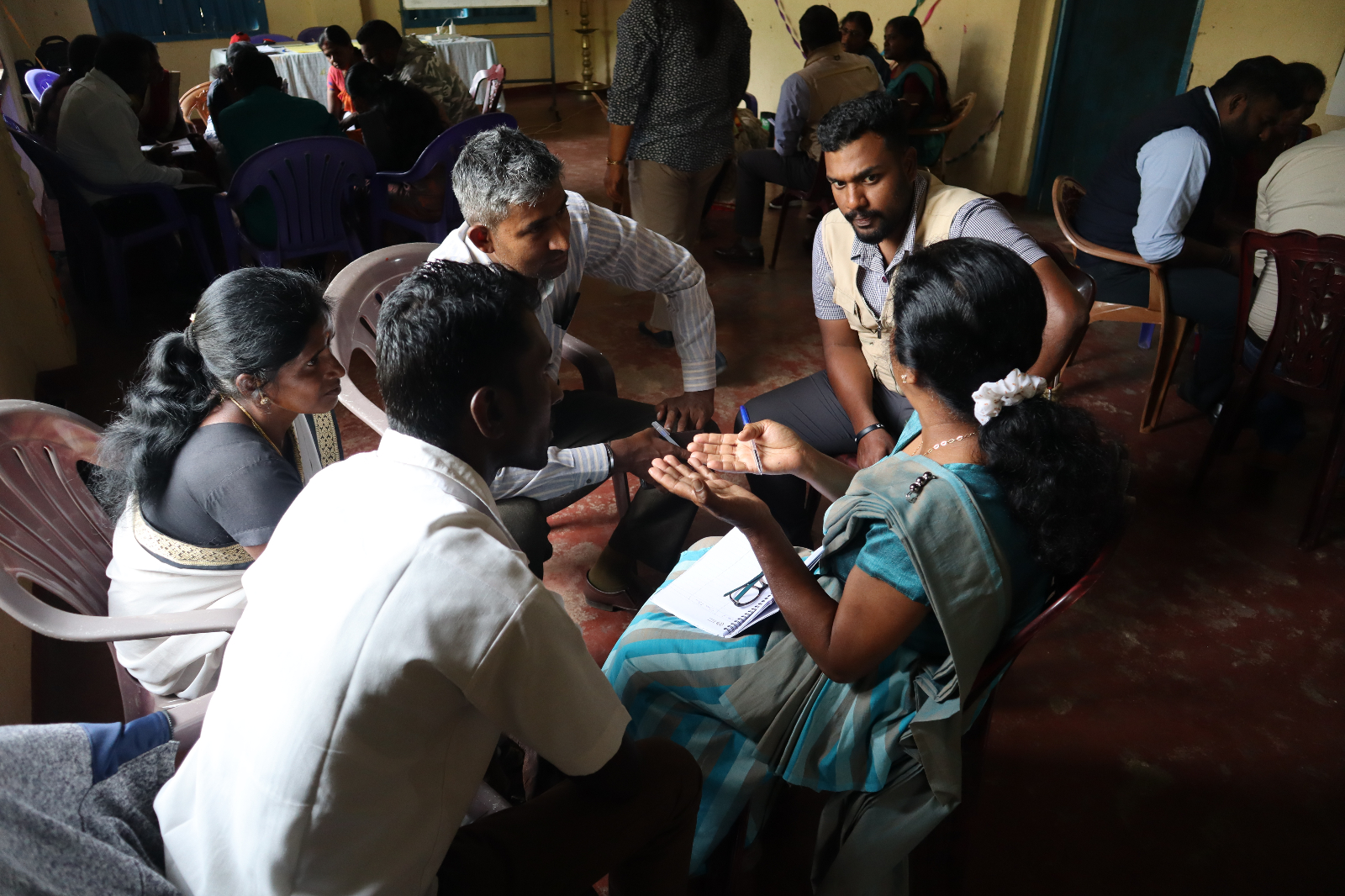
 Photo: A group of gender champions from one of Agarapatana Plantations estates in Sri Lanka. These “gender champions” can now facilitate important discussions on workplace gender issues with workers and provide support and guidance.
Photo: A group of gender champions from one of Agarapatana Plantations estates in Sri Lanka. These “gender champions” can now facilitate important discussions on workplace gender issues with workers and provide support and guidance.
The global tea sector continues to grapple with deep-rooted gender inequalities, from wage disparities to human rights violations, including sexual harassment, violence and inadequate access to sanitation, clean water and safe eating areas. Addressing these systemic challenges requires more than policies; it demands action.
In 2024, the Rainforest Alliance and its funding partner, Unilever, teamed up with The Centre for Child Rights and Business to pilot the "Gender Champions in the Workplace" programme across all 19 tea estates owned by Agarapatana Plantations in Sri Lanka. This initiative aimed to improve gender awareness, strengthen grievance mechanisms, and ensure social compliance – aligning with Rainforest Alliance’s belief that certification plays a key role in driving sustainability.
Building a Network of Gender Champions
At the heart of the programme was the creation of gender champions within each tea estate. These champions were equipped to identify, address and prevent gender-specific risks, while fostering a workplace culture where open communication, equality and safety are prioritised.
Key Achievements
Through targeted interventions, the programme delivered tangible results:
76 gender equity champions trained: Existing committee members were upskilled to assess and address gender risks effectively. Training covered gender-based violence in plantation settings and the role of grievance mechanisms in supporting workers.
Action plans developed for all 19 estates: Each estate crafted a roadmap for ongoing gender transformation, ensuring sustainability beyond the programme.
Train-the-trainer model introduced: A knowledge transfer system was put in place, enabling continuous gender training for staff and workers.
Worker engagement strengthened: Gender champions initiated discussions with workers, raising awareness of gender issues, the role of gender committees, and the available grievance mechanisms.
Increased confidence and trust: Champions became more effective in facilitating workplace conversations on gender, while workers reported feeling more supported and less isolated.

Photo: Staff from one of Agarapatana Plantations estates during a ‘’Gender Champions in the Workplace” workshop where they learned about gender sensitisation; GBV, sexual harassment and domestic violence; as well as gender discrimination, elements of gender-responsive policies and grievance mechanisms.

After participating in the session for estate managers, I began to hold planning discussions with the workers for the first time. The gender sensitisation workshop helped me change my attitude. I now find it comfortable and practical to openly talk with workers and listen to their suggestions for improvement in the workplace,” an estate manager stated during the learning review at the end of the pilot.

A Scalable Model for the Tea Industry
The "Gender Champions in the Workplace" programme has set a precedent for the tea sector, demonstrating that embedding gender awareness into company culture and strengthening grievance mechanisms leads to lasting, meaningful change. Beyond compliance, investing in gender equality enhances worker wellbeing, strengthens supply chain resilience, and contributes to a more sustainable industry.
Building on the success of the pilot, Agarapatana Plantations will continue strengthening its gender committees and grievance mechanisms, while the initiative expands to another plantation company in 2025. This expansion underscores the programme’s impact and scalability. Stakeholders interested in adopting this model are encouraged to reach out to The Centre for Child Rights and Business or Rainforest Alliance (vihangi.consultant@ra.org) to explore collaboration opportunities.
Watch the Video
Follow our Youtube channel for more videos.
2025/10/23
CALL FOR VOLUNTEERS!By using this website, you agree to our use of cookies. We use cookies to provide you with a great experience and to help our website run effectively.